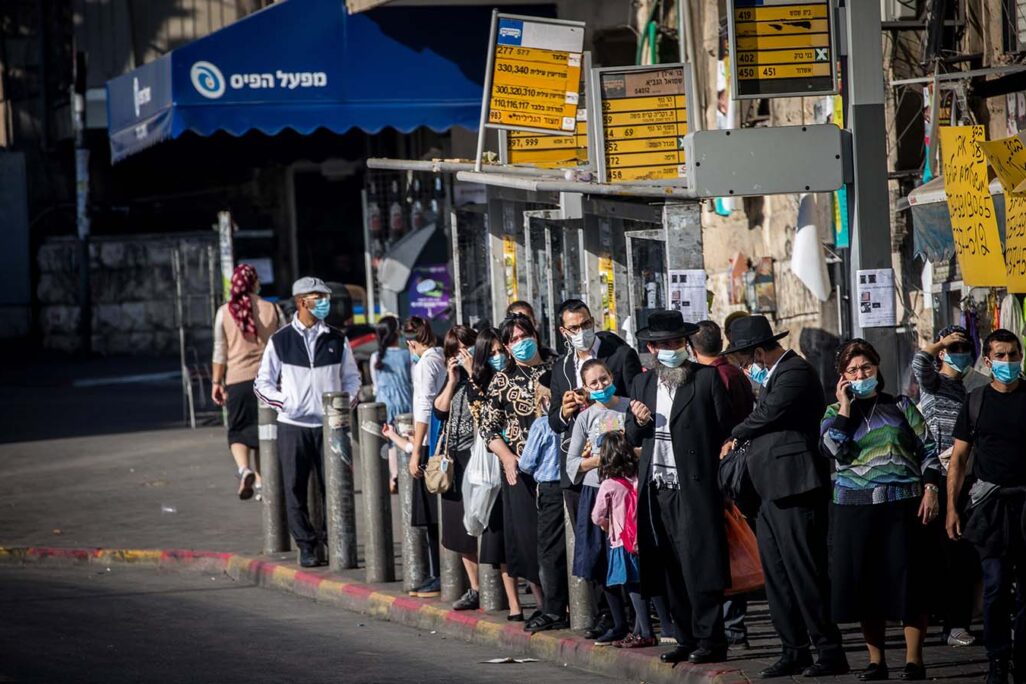
"I heard the yelling, the helicopter, and the sirens, even though I don’t live close by," Yehuda Drori, 35, who lives in Bnei Brak with his family, told Davar. "I got sent a video showing residents attacking undercover police officers. I was shocked. It doesn't matter if they knew they were police or not, that was not the Jewish way. After it came out, everyone who saw the video thought it was terrible.”
At the same time, however, Drori was dismayed by the police’s choice of tactics.
“99% of the city's residents condemn this violence, so suddenly dozens of armed policemen enter our neighborhoods?” he continued. “What is this, a war zone?”
Drori spoke with Davar after long days of growing tension between the police and the ultra-Orthodox community in Bnei Brak, a city in Israel just east of Tel Aviv. Israeli police have been enforcing the country’s third national lockdown, a measure taken last month to curb coronavirus infections. Since then, there have been severe clashes between ultra-Orthodox community members and police in Jerusalem, Beit Shemesh, Ashdod and especially in Bnei Brak.
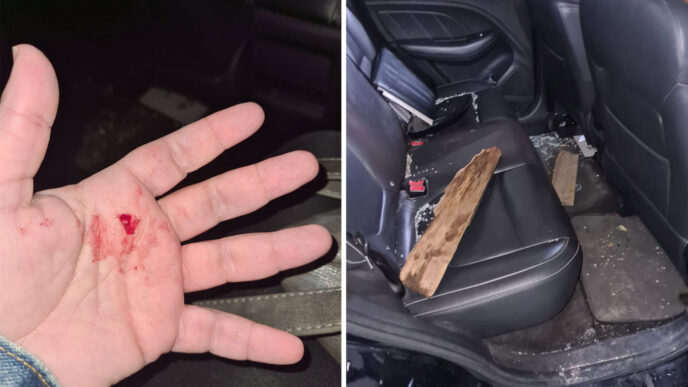
Police have encountered confrontations, roadblocks, and large protests, to the point of actual violence. Some have reportedly thrown stones at police vehicles and chased police officers.
About a week ago, a police report showed that the Arab population received a triple of the amount of police reports issued to Ultra-Orthodox communities for violating the lockdown. Arab Israelis received 80 reports per 10,000 people while Haredi received only 26. The general Jewish population, not including ultra-Orthodox Jews, received 58.6 reports per 10,000 residents.
According to a 2016 CBS survey, the ultra-Orthodox constitute 10.5% of the total population, yet the percentage of confirmed coronavirus cases and deaths is much higher than in the population as a whole, even though it is a relatively young community.
Public outrage grew after renowned rabbinical leader Rabbi Yisrael Hagar, who heads a Hasidic community made up of thousands of families, suggested that ultra-Orthodox elementary schools open despite the government lockdown.
As the Knesset discussed increased lockdown measures over the past month, ultra-Orthodox politicians repeatedly spoke out against it. They worked to prevent local closures, which would have imposed strict measures on the ultra-Orthodox communities suffering from the highest morbidity rates, and allowed the rest of the country to continue to operate relatively routinely.
Drori has been involved in inter-communal affairs in Bnei Brak for the past decade.
“Beyond the mess, which is terrible, I am thinking of the next generation,” he said. "Kids who see the violence, the batons, the stun grenades, what will they think of cops? That it's them versus us? It doesn't have to be this way. There is something about this behavior that reinforces the extremists. It seems like a PR exercise," he said, implying that the public’s outrage could be influancing the police's reaction.
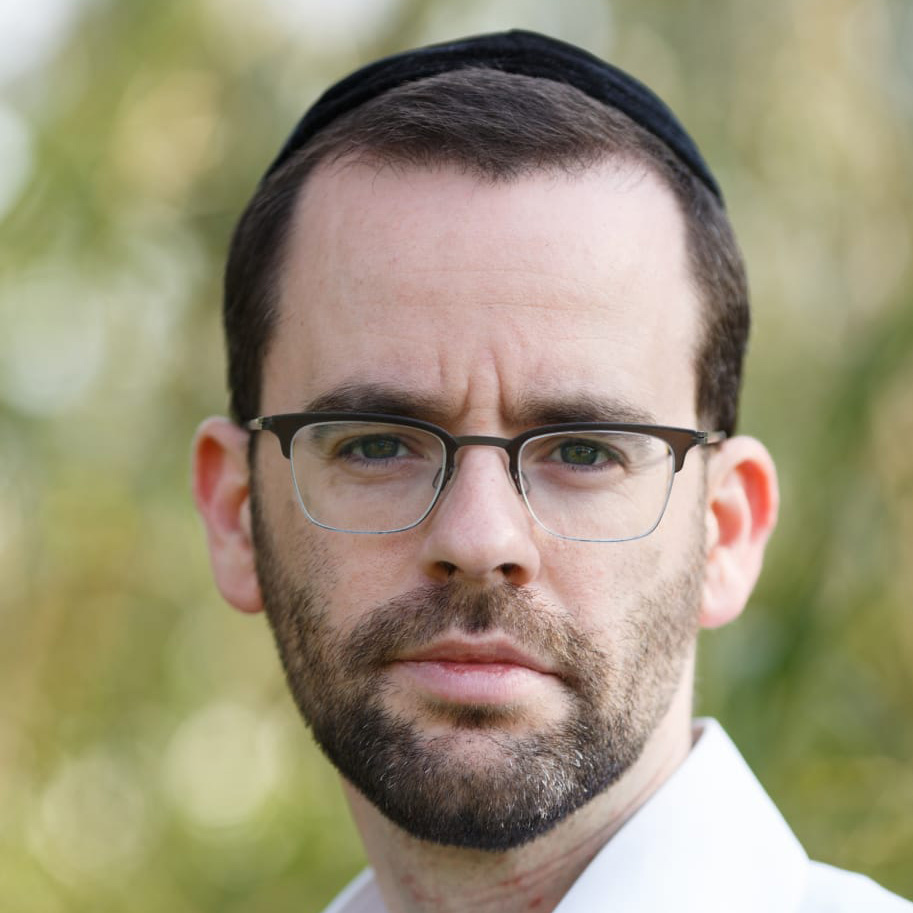
According to several members of the ultra-Orthodox community in Bnei Brak, it seems that Thursday's events will leave their mark on the complicated relationship between the Israeli police and the ultra-Orthodox public for many years to come.
On Thursday evening, a team of three plain-clothes police officers arrived in Bnei Brak. At one point, residents began attacking the officers, smashing the glass of the vehicle with stones and planks. One policewoman was slightly injured in the hand, and testified that she felt a danger to her life for several minutes.
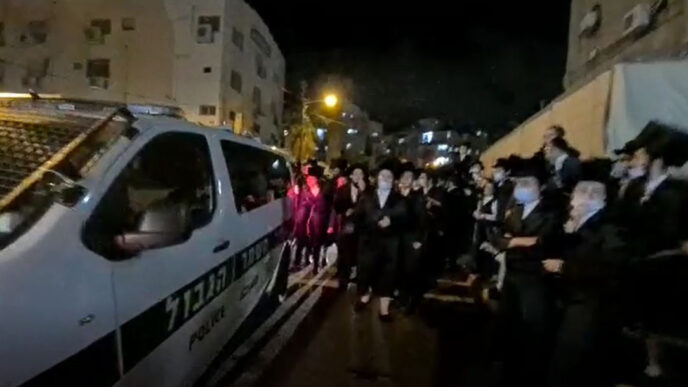
The incident led to widespread condemnation among politicians, including ultra-Orthodox Knesset members from the Shas party, who expressed shock at the violence against the police. Homeland Security Minister Amir Ohana's response was sharp: "The violence we saw tonight in Bnei Brak is a heinous crime and actual blasphemy. This will not pass quietly. The response will come, and fast. "
The response did come. At around 11:00 PM, police raided streets in Bnei Brak with the aim of arresting those suspected of violence against the police. But the forces dispersed over many streets of the city, and not just at the yeshiva where the suspects reportedly study.
Helicopters hovered over the city, while police vehicles patrolled the streets until late at night. Stun grenades were thrown, and six residents were arrested, though all were released the next day. As of Saturday night, no one suspected of participating in the original attack had been arrested.
"Want to show who the boss is? Be in the field"
"The guys thought it was a vehicle belonging to Shababnikim at-risk Haredi youth] , who came against the background of ultra-Orthodox hatred. They did not wear uniforms," said Itamar Kirschenbaum, a 20-year-old resident of Modi'in Illit. Kirschenbaum followed Thursday night's events closely.
"The police did not like it, it hurt their pride," he said. "As an ultra-Orthodox person, I think the police do not enforce enough. There are a lot of weddings in the ultra-Orthodox community in general, so the police could definitely do more, because there are a lot of violations in Bnei Brak. It’s a shame.”
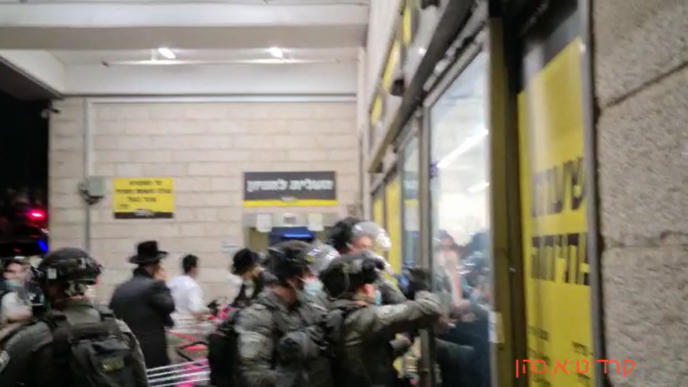
Miri Tabiovich, a veteran community activist in Modi'in Illit, agrees. "It is very important that the police enforce, we all condemn the behavior of these boys,” she said.
“At the beginning of the pandemic, we had close cooperation," she continued. "Now they want to treat us with a ‘strong hand.’ I say, let them behave as they do in Rothschild [Central Tel Aviv, where many anti-Netanyahu rallies take place].”
According to Tabiovich, police would be better off engaging in the community on a day-to-day basis.
“Want to show us who's boss? Be on the ground, constantly,” she said.
Whose guidelines do you follow?
"The ultra-Orthodox community is not just very careful, but also no less and perhaps even more careful than the general public," said Tabiovich. "Imagine secular families in Bat Yam or Tel Aviv with seven to 13 children without television or Internet access. Without financial means, so that it is not possible to order in food or games. Imagine them stuck at home for three days. Then tell me how much they abide by the regulations. People do not understand what it means, how many children we have. From every building in Modi'in Illit, it is possible to occupy a whole school, people do not understand that.”
Tabiovich speaks fast, fast enough to send her husband to buy challah for families with coronavirus for Shabbat, to cook, to operate charity groups that take care of families in need, and through it all to insist that the ultra-Orthodox community is disciplined and responsible. The problem, she claims, is the media’s need for provocations, the spread of misinformation in the community, and living conditions.
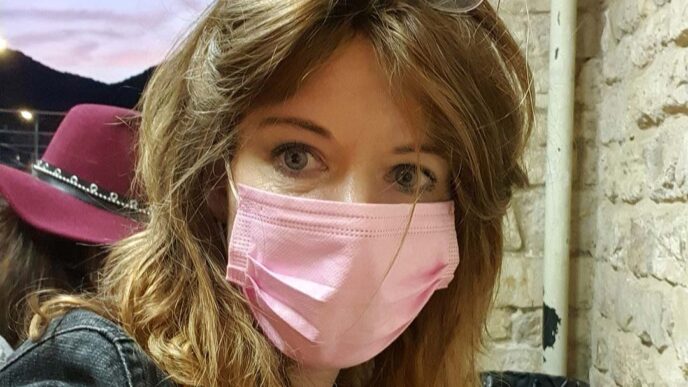
"Obviously the most extreme stories are what they show on television," she insisted. "Every week a classroom opens in Modi'in Illit, 30 to 40 children are born. Every week. Think about how many weddings that is each week, how many bar mitzvahs. You hear about hundreds of weddings, but there should be thousands."
"If I were in Gedera or Hadera and watching TV, I would also be angry," she admitted. "I think the public should try to understand that they do not realize what it means to be a family with so many children in quarantine."
"The ultra-Orthodox society has the tools to organize within our community,” Kirschenbaum said. “It is possible to have announcements made on speakers, it is possible to have large ads, but it cannot come from above. This community does not follow outside guidelines."
On the question of whether he himself would attend if he was invited to a wedding, he answers quickly, "I would not go to the wedding." Then he disagrees with himself. “It would be a big challenge for me. I think if I could come only to the chuppah, then I would go. Everyone wants to be at his cousin's wedding."
Yehuda Drori: “Of course there are real disagreements, but a dialogue could have taken place around the coronavirus, because there is a common enemy.”
Drori, a father of five "lovely children, even now when we are inside together all the time," makes sure to follow the quarantine regulations.
"I'm not unusual,” he said. “The children's schools are meticulous," he says, "Obviously what gets into the headlines is the violations, but there are also those who make sure to follow the guidelines. It needs to be put in proportion.”
"When the secular community sees another open kindergarten and another wedding, it creates a certain feeling," he explained. "But from what I see and from what I know, the majority adhere to the guidelines, so we feel that people are using us as scapegoats.”
He calls for "smart enforcement," but it has to be said that no one has come up with a good balance for the police to follow. The choice that the ultra-Orthodox community made to live in certain ways is costing it dearly, and the price is in human lives.
Drori, a member of the social project “Plugata” which aims to bring ultra-Orthodox and secular people to joint debates, does not shy away from controversy.
"If there’s one thing that stands out to the secular public as a violation of the law, it’s the opening of the yeshivas,” he said, referring to the fact that boys' educational institutions continue to operate in many places even in quarantine.
"This specific situation cannot be swept away, there is an ideological debate here. In the first lockdown, when everything was hermetically closed, we too were completely closed. There was a perception of complete danger, so it was clear that everything was closed,” he said.
“Then, each community pushed for the reopening of what was important to them,” he explained. “I do not expect a secular person to accept it, but that’s the argument. We disagree on many things."
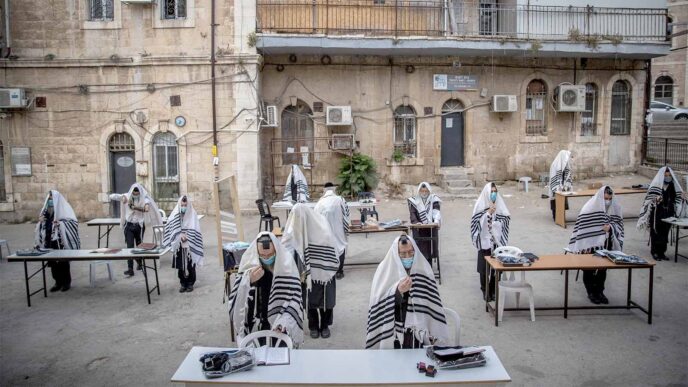
"The ultra-Orthodox community fears the state, fears that we will be taken over and our community spoiled,” Kirschenbaum said, frankly. "A synagogue is the soul of every Jew, it is the life of ultra-Orthodox society. It is the engine. It is where we meet. Since the Holocaust, there has been no situation where a synagogue has been closed. Even in wars it was not closed, on the contrary, it was open and we prayed.”
We need a real reconciliation cabinet
"The ultra-Orthodox public is going above and beyond, and we need to be embraced," said Tabiovich. "I collect second-hand games, and donate them on to families. We do what we can, really. Help us. We are one people."
"There are endless ultra-Orthodox charities helping everyone they can. Help us help those who need it, people are doing everything they can,” she continued “I see my friends, they are collapsing. In my neighborhood there are over 400 sick families. But there is so much strength and grace there, too. Even those who cannot help financially lend a hand. I invite the secular public to join."
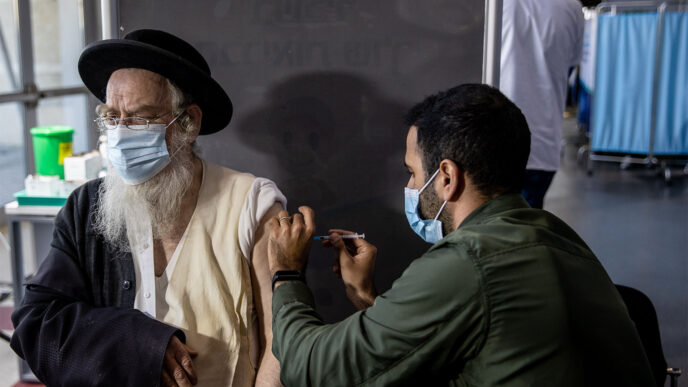
Drori asks the secular public, as well as the police, to understand the complexities of the tight-knit ultra Orthodox community.
"Generalization traps us. Which side am I on? The police or the residents? That question is too easy. Of course there are real disagreements, but a dialogue could have taken place around coronavirus, because there is a common enemy. I want the secular public to think about me, or my wife Esti, and not only what they show on television.
"I wish there was a real reconciliation cabinet, so that citizens could have a dialogue of disagreements. Understand that there are people on the 'other side,’" Drori concluded. “My fear is that an event like Thursday night means we are raising children who think that the police are our enemy.”






